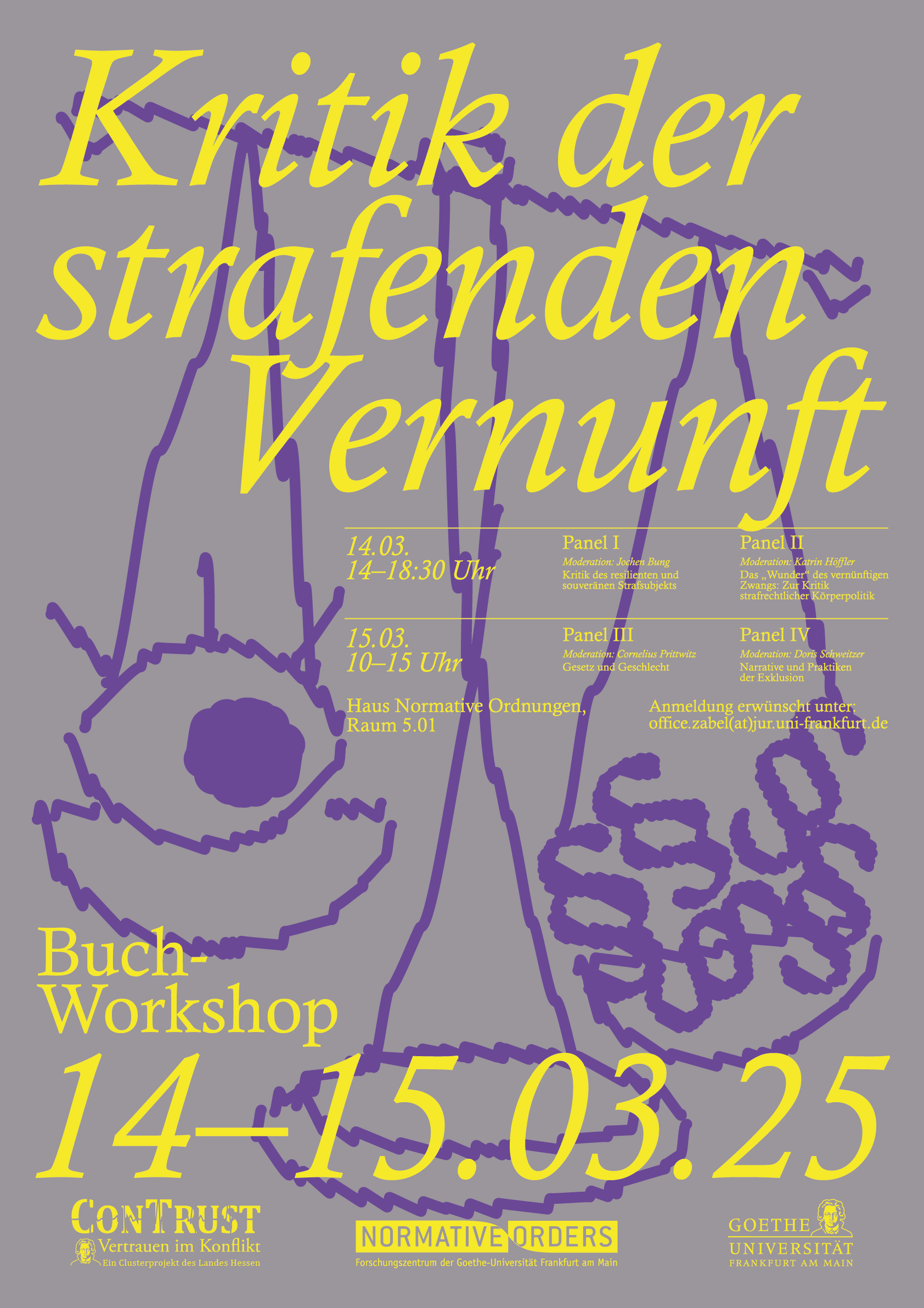Critique of punitive reason. Studies on justice, vulnerability and pain
Book workshop
Introduction to the debate: Klaus Günther & Benno Zabel
Registration requested at: office.zabel@jur.uni-frankfurt.de
March 14 and 15, 2025
Program
March 14, 2025
14.00 to 16.00
Panel I
Moderation: Jochen Bung
Critique of the resilient and sovereign subject of punishment (chapters 3, 5 and 6)
Doris Schweitzer, Max Pichl and Klaus Günther
What critical potential does the concept of vulnerability mobilize, what concept of autonomy and subject does criminal law work with and what problems does it entail? Can the semantics of vulnerability bring out the social background of legal subject constructions and social pathologies to a greater extent than has been the case to date?
16.00 to 16.30
Break
16.30 to 18.30
Panel II
Moderation: Katrin Höffler
The “miracle” of reasonable coercion: A critique of body politics in criminal law (chapters 5 and 6)
Markus Abraham, Esther Neuhann and Michael Kahlo
To what extent can punitive pain be understood as state-sanctioned body politics, how is individual suffering translated into social meaning and what does this mean for a humane approach to deviance?
March 15, 2025
10.00 to 12.00 a.m.
Panel III
Moderation: Cornelius Prittwitz
Law and gender (chapters 4 and 6)
Katrin Höffler, Franziska Dübgen and Anja Schmidt
Can the concept of vulnerability be used to better describe the precarious relationship between criminal law and gender relations, for example by focusing on the still patriarchal and masculinist interpretation of the legal subject, conflict patterns and conflict management? In addition to dealing with abortion, the diverse constellations of partner violence should also be considered here.
12.00 to 13.00
Break
13.00 to 15.00
Panel IV
Moderation: Doris Schweitzer
Narratives and practices of exclusion (chapters 6 and 7)
Jochen Bung, Christoph Burchard and Simon Kneip
Liberal criminal law claims not to be a medium of exclusion, despite the infliction of pain and the various stigmatizing practices. However, a literary reconstruction based on Shakespeare’s Shylock and a genealogical contextualization can make it clear that the practices of criminal law were and are much more ambivalent, even in their liberal epoch. We experience this ambivalence even in the present day, including in the debate about a criminal law against enemies or in dealing with migration.
Organizer:
“ConTrust. Trust in Conflict. Political Coexistence under Conditions of Uncertainty” – a cluster project of the State of Hesse at the Research Center “Normative Orders” at Goethe University Frankfurt am Main



